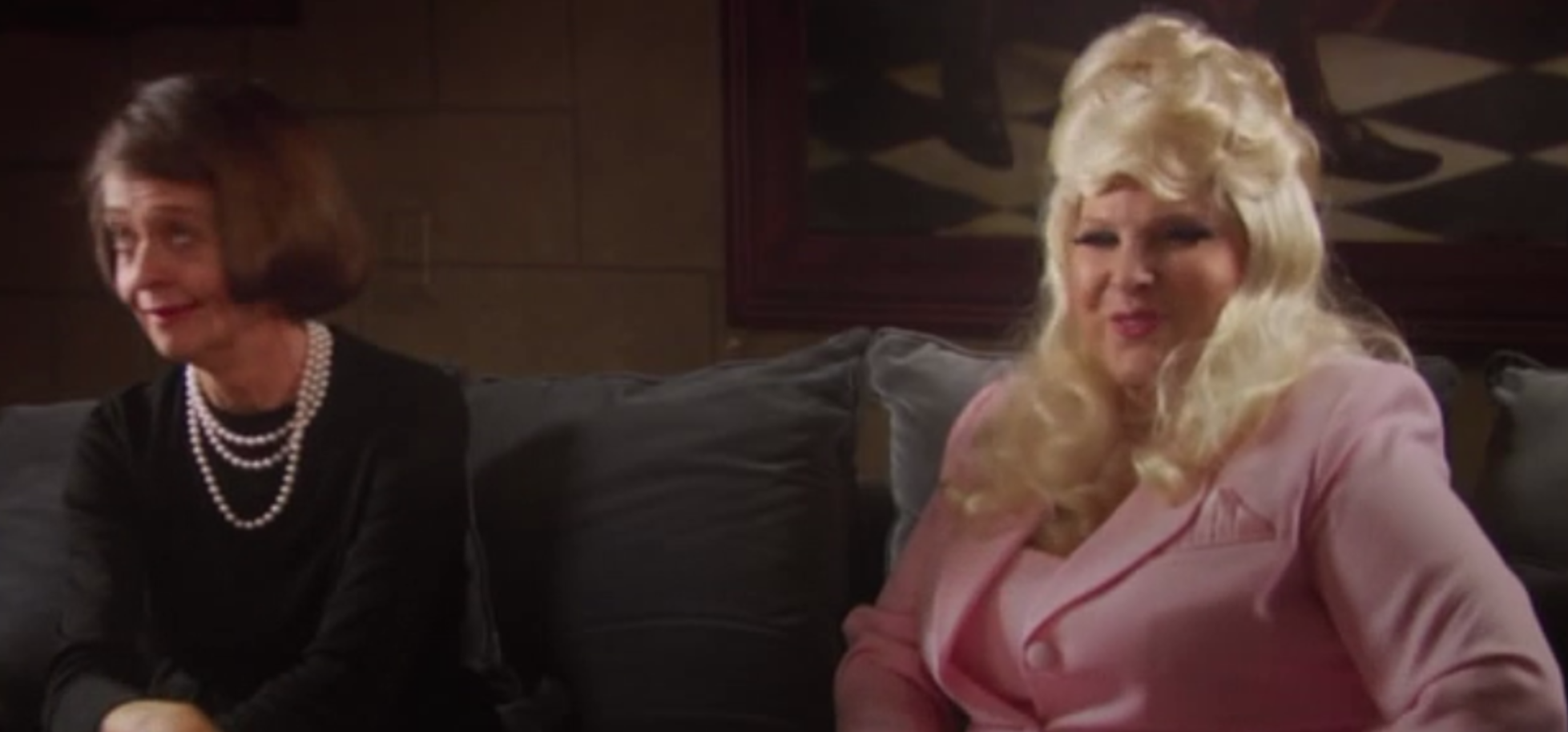 On November 13, 1973 Wes Wheadon was the bartender for a party that joined superstars Mae West (Victoria Mills) and Bette Davis (Karen Teliha) for the first time. He captured their encounter on audio tape, and then reenacted the event with lip-syncing actors, producing it more than 40 years later.
On November 13, 1973 Wes Wheadon was the bartender for a party that joined superstars Mae West (Victoria Mills) and Bette Davis (Karen Teliha) for the first time. He captured their encounter on audio tape, and then reenacted the event with lip-syncing actors, producing it more than 40 years later.
On the one hand, the film is fascinating–capturing the mutual admiration between these two strong female icons, particularly Davis’s for her hilarious predecessor. On the other, the poor quality of the audio gives me a skeezy feeling, like this recorder was hidden in a drawer and the actresses unaware, or the whole thing was faked or improperly edited for effect (not hard with such easily imitated voices). I know that the time period and recorder quality are likely responsible for the seeming sketchiness, but since both women are long dead and the event likely forgotten, it’s hard not to question even as you’re enjoying the interplay between these heroines of the screen.
I was fascinated by Davis’s descriptions of her battles for control and for actors’ rights, as with her recounting of Ronald Reagan’s tenure as SAG president. She suggests he sold out his fellow actors for the sake of his own future political gain.
Such blunt talk from Davis (who is drinking vodka and OJ throughout) is typical of the film. Her lines throughout are funny, and often outrageous:
“My enthusiasm is exhausting.”
“I tried to turn for years (into a lesbian). I thought it’d be so simple.”
(on the idea of marrying another man) “You kidding? End up supporting them?”
And some of West’s lines are equally fabulous, as in response to Davis’s question of whether she’d marry now (at 80):
“Well, I’d wanna see him first.”
But what I like best are West’s descriptions of the making of I’m No Angel, and her reflection that she’d always wanted to be a lion tamer (because of course she did). And her thoughts about her writing, as when she admits it could take her a day to come up with a great line. The studios besides Paramount, she claims, “were kicking against me too” during the Production Code years. She explains one of her methods to preserve her material. Originally, she says, the films would be shot and screened, and then the censors would shout out what they wanted eliminated. Instead, she had censors read and cut lines from her screenplays before they were filmed. She would add material before sharing the script that she knew they’d eliminate (“I start putting in stuff that I myself wouldn’t do”), hopefully preserving more of her actual lines in the process.
And, of course, one of the pleasures of the movie is when both women express their reactions to the male impersonators who’ve loved them so much over the years….
I can’t exactly recommend the film, as Wheadon’s narration is cheesy, and much of the interview is hard to hear, making its accuracy difficult to trust. But it IS a fun, remarkable conversation (true as experienced/not), and if you have Amazon Prime, it’s free.
This post is part of my monthly series on West.
